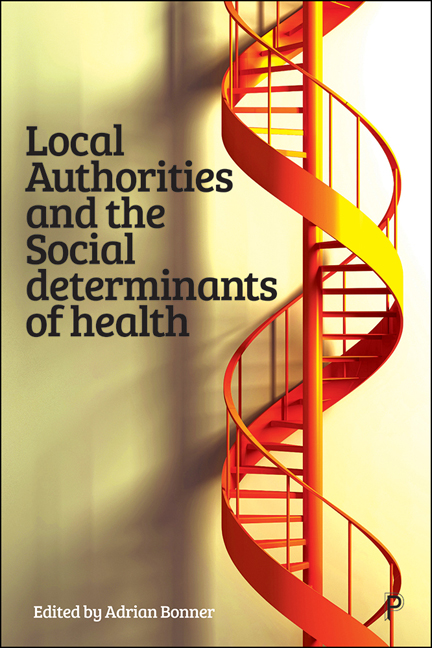Book contents
- Frontmatter
- Dedication
- Contents
- List of Figures, Tables and Boxes
- Notes on Contributors
- Acknowledgements
- Foreword
- Summary
- Introduction: Key Sociopolitical Changes Affecting the Health and Wellbeing of People
- Part I Health, Social Care and Community Wellbeing
- Part II The Role of Local Authorities in Promoting Health and Wellbeing in the Community
- Part III Local Authority Commissioning
- Part IV The Third Sector
- Part V Socio-Economic Political Perspectives
- Conclusion
- Appendix: COVID-19 Timeline
- Index
21 - Steadying the Swinging Pendulum – How Might We Accommodate Competing Approaches to Public Service Delivery?
Published online by Cambridge University Press: 25 March 2021
- Frontmatter
- Dedication
- Contents
- List of Figures, Tables and Boxes
- Notes on Contributors
- Acknowledgements
- Foreword
- Summary
- Introduction: Key Sociopolitical Changes Affecting the Health and Wellbeing of People
- Part I Health, Social Care and Community Wellbeing
- Part II The Role of Local Authorities in Promoting Health and Wellbeing in the Community
- Part III Local Authority Commissioning
- Part IV The Third Sector
- Part V Socio-Economic Political Perspectives
- Conclusion
- Appendix: COVID-19 Timeline
- Index
Summary
Introduction
As we have seen throughout this book, discourse around the social determinants of health is skewed towards the parts of the population whose adverse social circumstances harm their health the most. Local authorities are much closer to the complexities of service delivery than central government departments, and thus have an instrumental role to play in efforts to support these groups. As we have seen, they do not play this role alone – it is shared with other local delivery agencies, such as Sustainability and Transformation Partnerships in the National Health Service (NHS), as well as private providers and local community groups. There has always been much debate around what role each of these actors should play, and how they might interact with one another so as to create masterful theatre rather than a depressing farce. This question continues to be the focus of much policymaking, experimentation and debate. In this chapter, I will briefly take stock of the current state of thinking, before explaining my own recent attempt to make sense of the cocktail of approaches via the West London Zone for Children and Young People, a cross-sector delivery partnership. I go on to explore some of the intersecting themes across other efforts, drawing on research from the Government Outcomes Lab (where I now work). Finally, I explore the drivers behind the changes in approach that we are starting to see, and suggest some questions that we still need to answer if we are to truly make progress.
What is the problem?
Some of our most difficult work as public servants is serving those parts of the population whose lifestyle or circumstances cause them to interact with multiple aspects of the public services. This means we do not just meet them as they make use of health services, but perhaps housing, social care, employment support, criminal justice or any of a myriad of services that might have an influence on what we term the ‘social determinants of health’.
However we choose to characterise this group, there are always people in society who need, and tend to receive, greater levels of support from society at large.
- Type
- Chapter
- Information
- Local Authorities and the Social Determinants of Health , pp. 401 - 420Publisher: Bristol University PressPrint publication year: 2020



